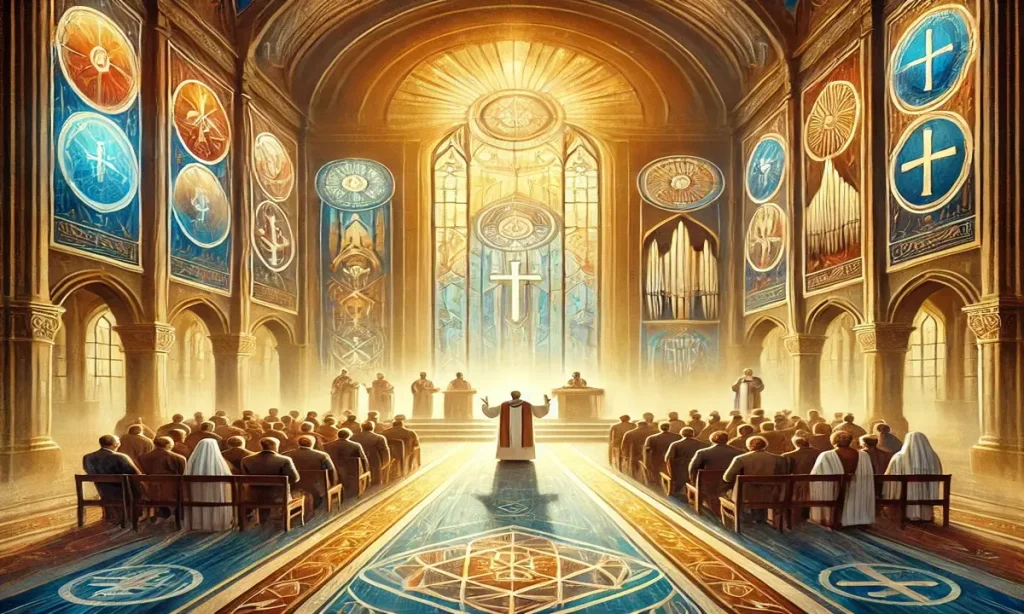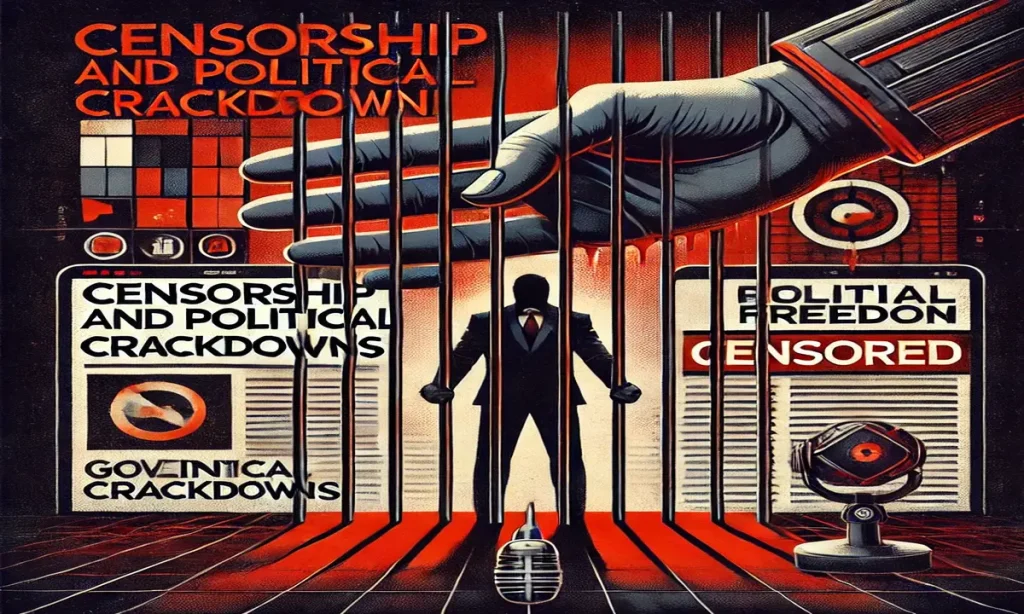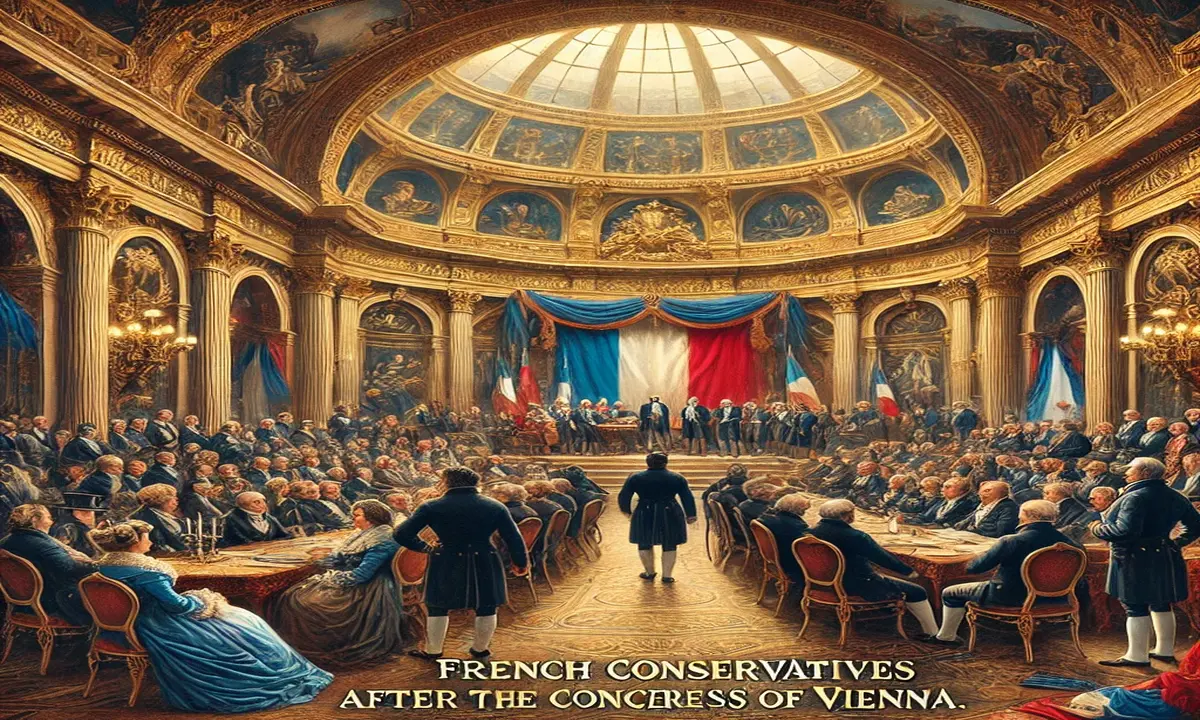The Congress of Vienna (1814–1815) reshaped Europe after Napoleon’s defeat. French conservatives wanted to restore the old monarchy and traditional institutions. They rejected liberal and nationalist ideas, fearing they would lead to instability and revolution.
This article explores the beliefs of French conservatives, their policies, and the challenges they faced. Want to know more? Let’s get started!
The Vision of French Conservatives
French conservatives wanted to turn back time. They believed in absolute monarchy, strong aristocratic rule, and the dominance of the Catholic Church. Their goal was to erase the influence of the French Revolution and ensure stability through traditional institutions.
Their key beliefs included:
- A king should have complete power.
- The monarchy should be restored and protected.
- The aristocracy should regain its lost privileges.
- The Catholic Church should guide morality and education.
- Liberal and nationalist movements must be suppressed.
To conservatives, the Revolution had caused chaos. They believed only strong rulers and traditional values could prevent another crisis.
The Return of the Monarchy
After Napoleon’s defeat, King Louis XVIII was placed on the throne. Conservatives saw this as a victory. They wanted the Bourbon dynasty to rule without interference. However, Louis XVIII introduced a constitution, the Charter of 1814, which allowed limited freedoms.
This upset hardcore conservatives. They wanted complete royal authority, with no elected bodies or personal freedoms. Over time, they worked to roll back these reforms and strengthen monarchical rule.
Religious Influence and the Role of the Church

Before the Revolution, the Catholic Church had enormous power in France. It controlled education, owned vast lands, and influenced government policies. However during the Revolution, it lost much of its authority.
Conservatives wanted to restore the Church’s power. They introduced policies to:
- Place schools under Church control.
- Promote religious teachings over secular education.
- Restrict anti-religious views and writings.
They believed that a religious society was a stable society. Religion, in their view, prevented rebellion and taught people to respect authority.
The Aristocracy and Their Privileges
The French Revolution had stripped nobles of their privileges. Their lands were confiscated, and many were executed or forced into exile. Conservatives fought to restore their status.
They pushed for policies that:
- Returned confiscated lands to noble families.
- Gave aristocrats government positions.
- Limited the political influence of the middle class.
For conservatives, a strong aristocracy was essential. They believed the nobility had the wisdom and experience needed to govern. In contrast, they saw commoners as too emotional and uneducated to participate in politics.
Censorship and Political Crackdowns

Conservatives feared liberal ideas. They worried that talk of democracy, equality, and freedom would spark another revolution. To prevent this, they introduced strict censorship laws.
These policies included:
- Banning newspapers that criticized the monarchy.
- Imprisoning or exiling political opponents.
- Suppressing protests and political meetings.
By controlling the press and punishing opposition, they hoped to silence revolutionary voices and maintain their power.
The Congress of Vienna and Its Impact
The Congress of Vienna was a meeting of European leaders after Napoleon’s fall. Its goal was to restore stability and prevent future wars. The main achievements included:
- Restoring old monarchies across Europe.
- Redrawing borders to balance power.
- Creating the “Concert of Europe,” an alliance to stop revolutions.
For French conservatives, the Congress was a triumph. It confirmed their vision of a monarch-led Europe. However, this balance wouldn’t last forever, as liberal ideas continued to spread.
Opposition and Growing Challenges

Despite their efforts, conservatives faced growing resistance. Several groups challenged their dominance:
1. The Middle Class
France’s middle class was growing due to industrialization and trade. These people wanted more political rights and economic opportunities. But conservatives ignored their demands, favoring the aristocracy instead.
As the middle class gained wealth and influence, they pushed for reforms. Their frustration would eventually lead to uprisings against conservative rule.
2. Liberal and Nationalist Movements
Across Europe, people demanded more freedoms and self-rule. In France, many citizens wanted:
- A government that represented the people.
- Freedom of speech and press.
- An end to aristocratic privileges.
Nationalist movements also emerged. Many regions within European empires wanted independence. Conservatives viewed these ideas as dangerous threats to stability.
The Fall of French Conservatism
Conservative rule did not last. In 1830, King Charles X tried to tighten his grip on power. His harsh policies led to the July Revolution, which forced him to abdicate. He was replaced by Louis-Philippe, a more liberal ruler.
The revolutions of 1848 were another blow to conservatives. Across Europe, people rose up against monarchies. In France, the monarchy was overthrown, and the Second Republic was established.
Despite their efforts, conservatives could not stop change forever. The ideas of democracy and equality had taken root, and they would continue to grow.
Final Thoughts
French conservatives after the Congress of Vienna wanted to restore the old order. They supported absolute monarchy, aristocratic privileges, and strong religious influence. They also worked to suppress liberal and nationalist ideas.
However, their vision clashed with the changing world. The middle class, liberal movements, and nationalists all fought for a different future. Though conservatives held power for a time, they could not prevent the push toward democracy and freedom.
FAQs
1. Which statement reflects the view of French conservatives after the Congress of Vienna?
French conservatives believed in absolute monarchy, aristocratic privilege, and strong religious influence. They opposed liberal and nationalist movements, fearing they would create instability.
2. Why did French conservatives support monarchy?
They believed a strong king was necessary for stability. They saw the Revolution and Napoleon’s rule as proof that giving power to the people led to chaos.
3. How did conservatives try to suppress liberal ideas?
They enforced censorship, banned opposition newspapers, and arrested political activists. They also used secret police to monitor revolutionary activities.
4. What role did the Catholic Church play in conservative policies?
The Church was seen as a moral authority. Conservatives restored its influence by placing education under Church control and promoting religious teachings.
5. Why did French conservatism decline?
The growing middle class, liberal movements, and nationalist uprisings weakened conservative power. The revolutions of 1830 and 1848 led to more democratic reforms in France.












